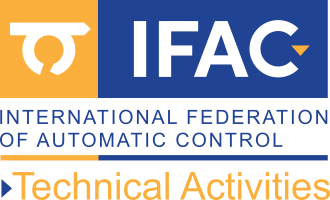Welcome Message

Vision of TC4.3 :
The field of robotics has evolved from being merely an application of control systems to establishing itself as a distinct discipline and a thriving industry. While robotics and mechatronics share similarities, both combining mechanical and control engineering to offer technical solutions for specific purposes, robotics stands out as a field that is markedly demand-driven, practical, and solution-oriented. Consequently, the challenges encountered in robotics often necessitate not only the development of new solutions by optimally integrating existing methods but also exploring entirely novel methodologies and simulation approaches.
Due to these distinctive characteristics, engineering methods used in robotics are in a perpetual state of evolution. Control engineering methods follow a similar trajectory. Classical robotics, which once relied on planning and precisely executing motions, has undergone a paradigm shift in the 2020s, focusing on task-oriented, data-driven, simulation-based design, among other approaches. Consequently, control in robotics is no longer confined to mere motion generation; it now serves as preparatory work for crafting sophisticated system designs and assumes the role of risk management, actively adapting to complex and unpredictable environments.
The academic community of robotics researchers continues to expand daily. The Robotics Group within IFAC strives to be a specialized community with a central focus on the control of robotic systems. The TC4.3 aims to serve as a platform for the exchange of ideas concerning the rapidly advancing field of robot control technology, offering a forum for young engineers and researchers to participate in open and constructive discussions.
Scope of TC4.3 :
- Societal, cultural, economic, and industrial demands for robotics.
- Technical and economic challenges in promoting the industrialization of robots.
- Mechatronics approaches for robot system development.
- The latest component technologies that constitute robots.
- Robot operating systems.
- Data collection, signal processing, and management for robots.
- Service design for robots and user feedback management.
- Cooperative control methods using multiple robots.
- Robot system simulation and reinforcement learning.
- Methods to bridge the gap between simulation and real-world application (Sim2real).

